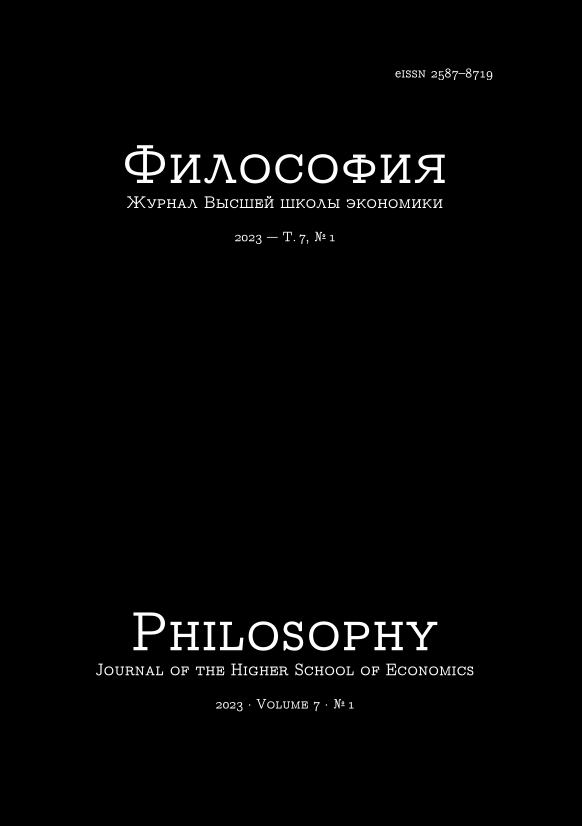Free Will in the World as a Computer Simulation
Abstract
The article discusses the original many-worlds version based on the model of the world as a computer simulation, namely the space of a video game. Based on the interpretation of Benjamin Libet's experiment an assumption is made about how a person can function in a virtual game reality being and perceived as basic. This case shows that the question of the freedom of a person`s actions acquires a new meaning. In particular, in this situation, the acting person is proved to be actually deprived of the opportunity to act since decisions are made for him by someone else, for whom, in turn, decisions could be also someone else`s. The implementation of the described in the article scenario is theoretically possible — on obligatory condition of the successful creation of artificial intelligence and the availability of technical capacities which are necessary for the functioning of complex virtual systems. Obviously, at the moment neither one nor the other has been developed. But this is a highly topical issue and in modern scientific This work uses modeling and intellectual experiment methods: a simplified simulation model of a popular open-world video game is taken to demonstrate the main idea. Its example shows how the observable world can be realized — one of the possible versions of the multiverse.
Downloads
Copyright (c) 2023 Philosophy. Journal of the Higher School of Economics

This work is licensed under a Creative Commons Attribution-NonCommercial 4.0 International License.






